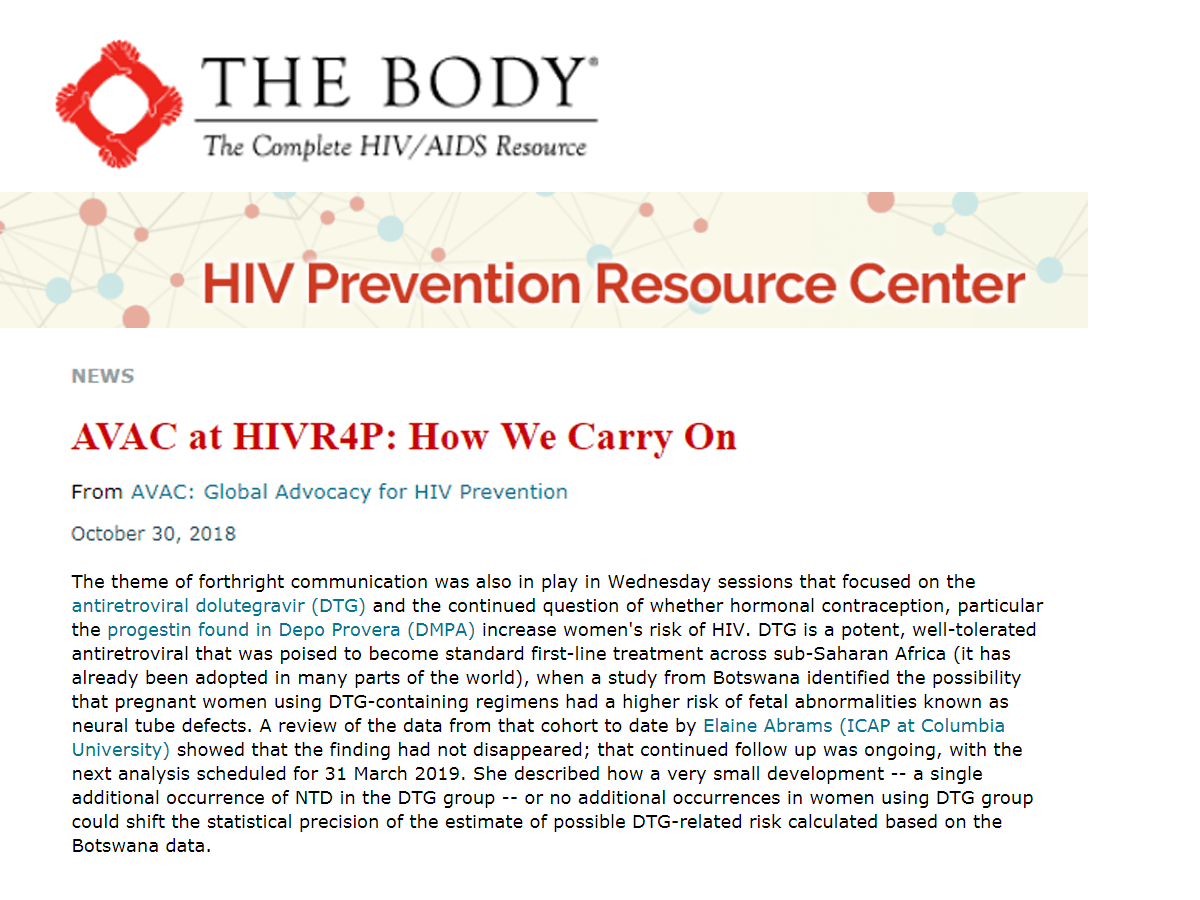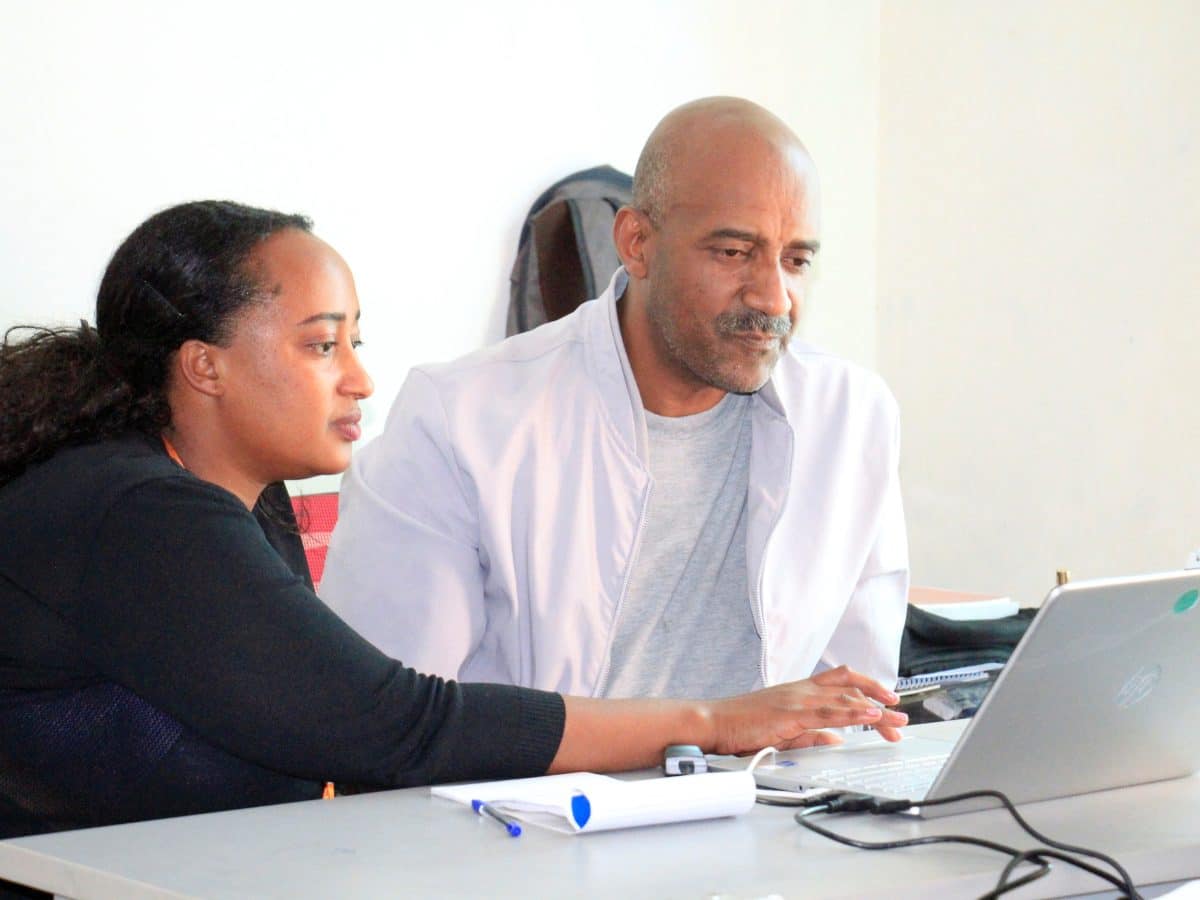There are no easy solutions these days. But often the way through the most difficult moments or problems is via an acknowledgment of human reality: the things we know about ourselves and our communities that we forget when we put on our professional hats, or feel we have to hide some part of ourselves for respect, credibility or safety. This intuition — about what people need and why — is also the source of connection and common purpose. And it may also be the source of combination prevention that works.
The theme of forthright communication was also in play in Wednesday sessions that focused on the antiretroviral dolutegravir (DTG) and the continued question of whether hormonal contraception, particularly the progestin found in Depo Provera (DMPA) increase women’s risk of HIV. DTG is a potent, well-tolerated antiretroviral that was poised to become standard first-line treatment across sub-Saharan Africa (it has already been adopted in many parts of the world), when a study from Botswana identified the possibility that pregnant women using DTG-containing regimens had a higher risk of fetal abnormalities known as neural tube defects. A review of the data from that cohort to date by Elaine Abrams (ICAP at Columbia University) showed that the finding had not disappeared; that continued follow up was ongoing, with the next analysis scheduled for 31 March 2019. She described how a very small development — a single additional occurrence of NTD in the DTG group — or no additional occurrences in women using DTG group could shift the statistical precision of the estimate of possible DTG-related risk calculated based on the Botswana data.
This story originally appeared in the AVAC newsletter on October 29, 2018.
Read the full article on TheBody.com
Watch Elaine Abrams’ HIVR4P 2018 presentation here
See the full list of ICAP posters and presentations at HIVR4P here







